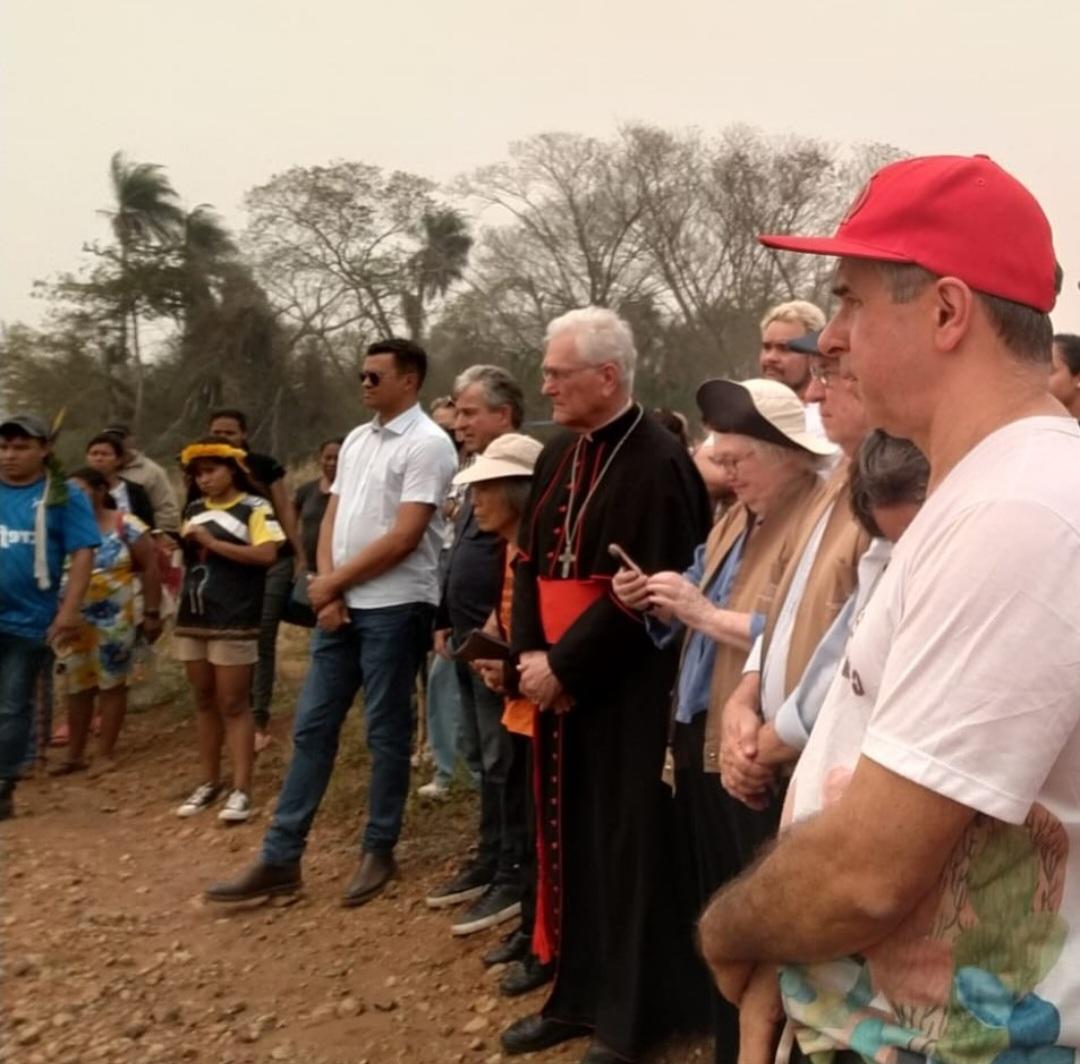SÃO PAULO – A series of police attacks on Indigenous communities that have been struggling for their traditional territories have resulted in one death and a number of injured members of the Guarani Kaiowá group last week in Mato Grosso do Sul state of Brazil, near the border with Paraguay.
Activists of the Bishops’ Conference’s Indigenous Missionary Council (CIMI) traveled to Geneva, Switzerland, this week in order to speak to the United Nations Human Rights Council about the systematic violations suffered by the Guarani Kaiowá in Brazil.
A group of Guarani Kaiowá that live in the Indigenous territory named Nhanderu Marangatu, located in the city of Antônio João in Mato Grosso do Sul state, has been re-occupying portions of its traditional territories currently invaded by a farm.
Police forces were called, and violence erupted on Sept. 12, when the security forces shot at the Indigenous families in the area, injuring three people.
On the following day, a committee of human rights advocates visited the region. Cardinal Leonardo Steiner, who is the Archbishop of Manaus and heads CIMI, was among the visitors. As soon as the group left the area, the police again acted violently, destroying the Indigenous camp.
On Sept. 18, a new armed attack from the police caused the death of Neri Ramos da Silva, a 23-year-old Guarani Kaiowá man. Part of the group saw policemen dragging da Silva’s body to a nearby forest area. They acted quickly and were able to recover their relative’s body. Da Silva had a 11-month-old baby.
On Sept. 23, members of the Guarani Kaiowá people discovered the body of 15-year-old Fred Souza Garcete. He was riding a motorcycle between two villages located inside of the Indigenous territory when he went missing. His head had signs of violence. The police claimed that Garcete suffered an accident. His relatives and friends doubt it.
According to CIMI agents, the state police have been respecting only the farmers’ interests and have been treating the Indigenous people with extreme violence.
“The federal government could have avoided that tragedy by sending troops of the National Force, but failed to do so,” said Luis Ventura, CIMI’s coordinator.
Flávio Machado, a CIMI local missionary in the nearby city of Dourados, explained to Crux that the Guarani Kaiowá have had their lands progressively stolen since the end of the Paraguay war, in 1870, when Brazil, Argentina, and Uruguay imposed to Paraguay a new border, one that divided the territories of the Guarani Kaiowá between Paraguay and in Brazil.
In the decade of 1950, farmers from other parts of the country began to arrive in the region, and conflicts with the Guarani Kaiowá became inevitable. But only in the decade of 1990 the government conducted a first study in order to certify the historical territories occupied by the Guarani.
“President Luiz Inácio Lula da Silva certified the territory in 2005 [his first tenure], but it was never officially granted to them. The Supreme Court suspended the process shortly later,” Machado said.
As the Guarani Kaiowá tried to occupy the whole area recognized by the government as their ancestral territory, the local farmers became more and more violent, frequently resorting to the police.
“Over the past few decades, the agribusiness expanded and sealed a solid partnership with the politicians of Mato Grosso do Sul, who ordered the local government to cater to the farmers,” Ventura told Crux.
Lula’s administration has been negligent and took too long to grant the lands to the Guarani Kaiowá, Ventura added.
“The Guarani Kaiowá are among the Indigenous groups whose territories are most threatened in the entire South America. That’s why their case called the attention of the United Nations,” he said.
The federal government should take a number of urgent measures in order to deal with the Guarani Kaiowá crisis, especially preventing police violence from happening again.
“The perpetrators of the killings and injuries should be investigated. It’s important to know who is paying them to do those atrocities,” Ventura said.
Flavio Machado added that the trial concerning the land granting process for the Guarani Kaiowá should be resumed.
“There’s plenty of documentation concerning their historical ties with that land. It’s also noticeable that the deeds presented by many ranchers are false,” he explained.
Machado said that the families who have been living and planting inside of the Indigenous’s lands should be removed and installed in other areas by the government.











